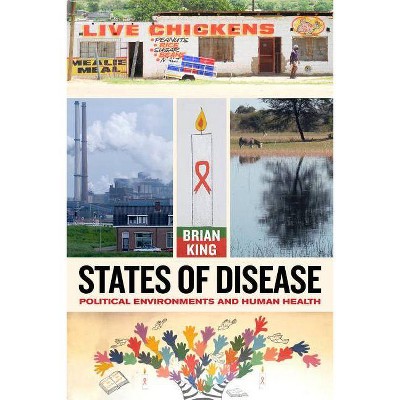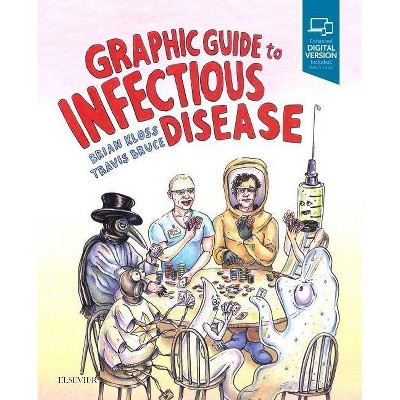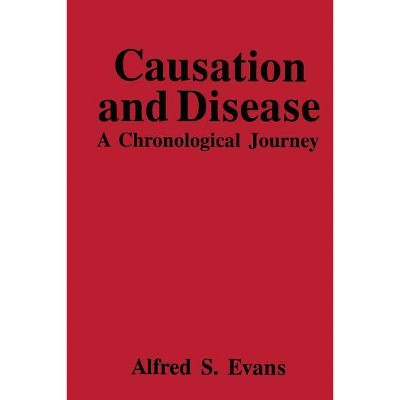States of Disease - by Brian King (Paperback)

Similar Products
Products of same category from the store
AllProduct info
<p/><br></br><p><b> About the Book </b></p></br></br>"Human health is shaped by the interactions between social and ecological systems. States of Disease advances a social ecology of health framework to demonstrate how historical spatial formations contribute to contemporary vulnerabilities to disease and the possibilities for health justice. The book examines how managed HIV in South Africa is being transformed with expanded access to antiretroviral therapy, and how environmental health in northern Botswana is shifting due to global climate change and flooding variability. These cases demonstrate how the political environmental context shapes the ways in which health is embodied, experienced, and managed"--Provided by publisher.<p/><br></br><p><b> Book Synopsis </b></p></br></br>Human health is shaped by the interactions between social and ecological systems. In <i>States of Disease, </i>Brian King advances a social ecology of health framework to demonstrate how historical spatial formations contribute to contemporary vulnerabilities to disease and the opportunities for health justice. He examines how expanded access to antiretroviral therapy is transforming managed HIV in South Africa. And he reveals how environmental health is shifting due to global climate change and flooding variability in northern Botswana. These case studies illustrate how the political environmental context shapes the ways in which health is embodied, experienced, and managed.<p/><br></br><p><b> From the Back Cover </b></p></br></br>"<i>States of Disease</i> is a major contribution to the study of the political ecology of health. Drawing upon long-term research from Southern Africa, King shows how human health is produced through complex social, political, and economic systems. The standard medical model too often limits our view, so we fail to draw the connections that could produce healthier social relations. A crucial intervention."--Joel Wainwright, author of<i> Decolonizing Development: Colonial Power and the Maya</i> <p/> "Social scientists have increasingly applied new analytical approaches to the study of health--yet the discipline of geography has largely been on the sidelines. <i>States of Disease </i>sharpens the cutting-edge tools of political ecology to argue persuasively that ecological conditions are integral to the politics and spatiality of disease and wellness. In contributing to multilayered understandings of HIV/AIDS, the book challenges dominant biomedical approaches."--Mark Hunter, author of <i>Love in the Time of AIDS: Inequality, Gender, and Rights in South Africa</i> <p/> "Where is disease located? So much of our current thinking is dominated by a biomedical model that locates disease within individual bodies. In <i>States of Disease, </i> Brian King demonstrates the fundamental shortcomings of this view, countering with a nuanced interdisciplinary account of HIV/AIDS in South Africa, placing it within a larger social and political landscape of health."--Barbara Entwisle, Kenan Professor of Sociology, University of North Carolina at Chapel Hill <p/> "In <i>States of Disease, </i>Brian King compellingly demonstrates that challenges like HIV/AIDS and malaria are structurally driven, spatially complex, ecologically networked, and systemically unequal health problems, but ones that have mistakenly been treated in strictly biomedical and individual terms, time and again. <i>States of Disease</i> traces complex political ecologies that exact a terrible human toll when they're ignored. Such enormous suffering makes this milestone work of research all the more urgent."--Paul Robbins, Director, Nelson Institute for Environmental Studies<p/><br></br><p><b> Review Quotes </b></p></br></br><br>"In his recent book, <i>States of Disease: Political Environments and Human Health</i>, Brian King weaves together political ecology and health geography using innovative and transformative writing."-- "AAG Review of Books" (4/5/2019 12:00:00 AM)<br><br>"King presents fresh new ways of thinking about the ways in which political and economic environments shape human health, and his in-depth examples, born from years in the field and a deep understanding of the local, social, and political environments he studies, sheds light on how these broad processes shape both health vulnerability as well as public health responses to these health threats."-- "Bulletin of the History of Medicine"<br><br>"The primary significance of this book is its integration of social ecological with political contexts of health and infectious disease in developing countries. Its main strength is concise analysis that applies history, relevant theory, and research to public health and infectious disease control policy in sub-Saharan Africa. It complements interdisciplinary research and analysis in public health, medical anthropology, sociology, economics and global health policy."-- "Health Tomorrow"<br><p/><br></br><p><b> About the Author </b></p></br></br><b>Brian King</b> is Associate Professor of Geography at The Pennsylvania State University.
Price History
Price Archive shows prices from various stores, lets you see history and find the cheapest. There is no actual sale on the website. For all support, inquiry and suggestion messagescommunication@pricearchive.us




















